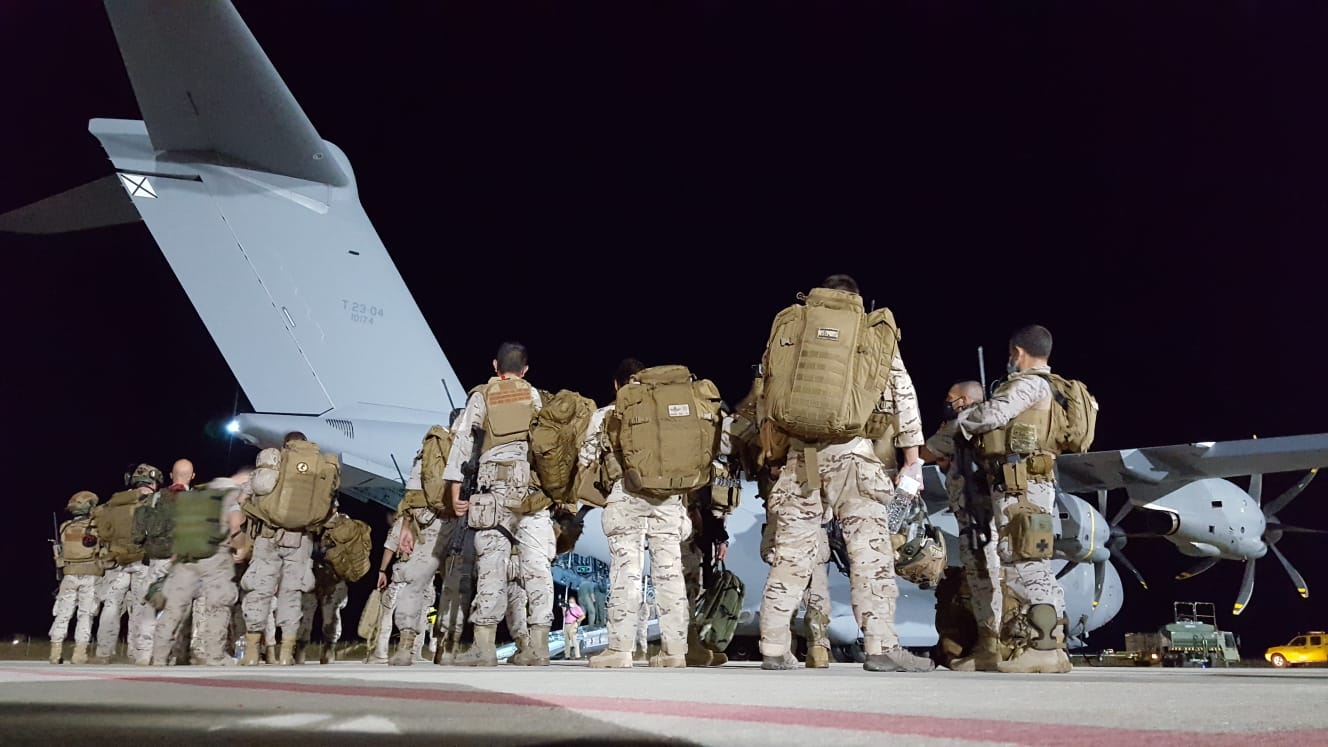The Diplomat
The president of the PP, Pablo Casado, yesterday demanded that the head of the Executive, Pedro Sánchez, appear in the Congress of Deputies to explain the “withdrawal” of Spain in Afghanistan, after the arrival of the Taliban in Kabul.
In his Twitter account, Casado said that “The Taliban victory in Afghanistan is a serious defeat for Western allies against Islamic terrorism and in favour of human rights, especially women’s rights”. And he added that “Sánchez should inform Congress of Spain’s withdrawal and position, as Merkel and Johnson will do today”, in reference to the prime ministers of Germany and the United Kingdom.
In statements to Efe, Pablo Hispán, deputy spokesman for the Spanish Foreign Affairs Committee, described as “unacceptable” what he considered the “lack of foresight and improvisation” of Sánchez and the Minister of Foreign Affairs, José Manuel Albares, in the face of the Afghan crisis. He added that a matter of the magnitude of the Afghan crisis requires “seriousness, transparency, rigour and explanations” and that “if they are not given, something must be going on”.
Hispán regretted that the government is not providing information to the main opposition party on the repatriation of the Spaniards who remain in Kabul and the Afghans who have worked with Spain in recent years. There is not an ounce of sense of State in this Government”, he said, while he called it “shameful and worrying” that leaders of Unidas Podemos are once again airing their disagreements with the socialist part of the Executive and lashing out against the NATO mission in Afghanistan.
Yesterday, Albares said on his Twitter account that he was informing the spokespersons and heads of foreign affairs of the political parties represented in Congress “about the situation in Afghanistan, the evacuation plan and my conversations with our partners and allies”. “Transparency and collaboration are key to the success of Spain’s foreign policy,” he added.
The PP spokeswoman in the Foreign Affairs Committee, Valentina Martínez Ferro, explained that she had asked the head of diplomacy for more concrete information and a “clearer map” of how the departure of the Spaniards, the embassy staff, the translators and their families will be carried out.
The Minister of Foreign Affairs, according to his department, also made contact with the Secretary General of NATO, Jens Stoltenberg, and with the EU’s High Representative for Foreign Policy, Josep Borrell, with whom he agreed on the concern over the “serious humanitarian situation being experienced by the Afghan civilian population, with special emphasis on the case of women and girls”.
Albares explained to Stoltenberg and Borrell the evacuation plan put in place by Spain, which includes sending two A400 aircraft to Dubai, from where they will try to repatriate the embassy staff, the Spaniards who remain in the country and all those Afghans and their families who have been collaborating with our country for years.
The minister expressed the government’s willingness to support the efforts of the EU and NATO and to transfer personnel from both organisations to Spain as a point of entry into the EU.
Meanwhile, one of the two Spanish planes left last night for Dubai and the other was scheduled to leave first thing this morning, but the chaos in Afghanistan has made their arrival at Kabul airport extremely difficult, where the embassy staff and security personnel accompanying them (GEO) are already waiting, according to Interior Minister Fernando Grande-Marlaska, who told Cadena Ser.
According to Grande-Marlaska, the airport right now “is a safe place”, despite the latest images that have arrived with thousands of people trying to leave the country and even some shots fired into the air.
On the political front, in addition to the PP’s request for Sánchez to appear in the lower house, Ciudadanos and Vox have also asked the foreign minister to do so. Santiago Abascal’s party is also calling for the Minister of Defence, Margarita Robles, to do the same.
Ciudadanos also proposed approving in the Congress of Deputies an “extraordinary resettlement” of Afghans fleeing the Taliban, following the example of Canada, and that they should then be relocated in collaboration with the autonomous communities.
For its part, the Fundación Madrina, asked to speak, pointed out that “welcoming, rehousing and integrating” the families of the Afghans who collaborated with Spain is a question of justice, especially to protect the minors they will bring. For this reason, he offered the government a programme that the foundation has in place to welcome families in rural environments, working in different communities such as Castilla-León, La Mancha, Aragón, Andalusia, among others.
Albares thanked yesterday’s Twitter account for the solidarity of the “Autonomous Regions and municipalities” that have offered “to take in refugees”, after various regional and municipal governments proposed their territories as refuges.
From Podemos, her Secretary of Organisation, Lilith Verstrynge, stated that the government should facilitate the reception of migrants who want to leave Afghanistan, as she considers that the West has “direct responsibility” for the suffering of those fleeing the conflict.
For the leader of the purple party, the recovery of control of Afghanistan by the Taliban is “a demonstration of the failure of the US to implement democracy by cannon fire” and a reflection of the failure of NATO and of a European Union “without its own international policy”.







